Literary Doppelgangers

 Matthew Simmons and Eddie Vedder are from Seattle. They are both musicians, pro-choice, and own the album Ten. Matthew Simmons, when he was in high school, identified with Jeremy, the protagonist in the song “Jeremy.” When Matthew told his mom he wanted to shoot himself in front of his class, she said “that’s a banana, dear.” Matthew Simmons’ tongue is not as long as Gene Simmons’, and neither will his career be. (Ouch.) When Pearl Jam was on SNL with Sharon Stone, Eddie professed to smelling her garments in the dressing room. I remember thinking “go pervs!” When I read Matthew Simmons’ posts here, I think “insane is okay.” Thank you Matthew Simmons for being you. I can mail you some unwashed articles for you to sniff. My B.O. Boxers in your P.O. Box — get it? Moron.
Matthew Simmons and Eddie Vedder are from Seattle. They are both musicians, pro-choice, and own the album Ten. Matthew Simmons, when he was in high school, identified with Jeremy, the protagonist in the song “Jeremy.” When Matthew told his mom he wanted to shoot himself in front of his class, she said “that’s a banana, dear.” Matthew Simmons’ tongue is not as long as Gene Simmons’, and neither will his career be. (Ouch.) When Pearl Jam was on SNL with Sharon Stone, Eddie professed to smelling her garments in the dressing room. I remember thinking “go pervs!” When I read Matthew Simmons’ posts here, I think “insane is okay.” Thank you Matthew Simmons for being you. I can mail you some unwashed articles for you to sniff. My B.O. Boxers in your P.O. Box — get it? Moron.
“When Authors Get Off” Contest
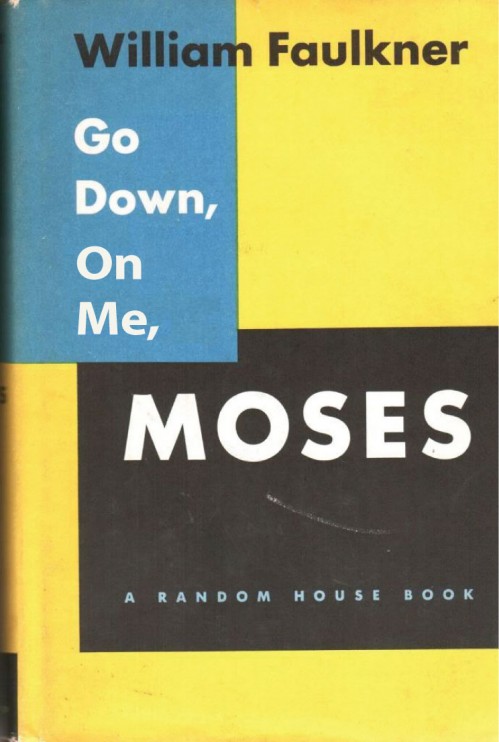 Per Annalemma Editor/Publisher Chris Heavener’s comment in the “When Authors Get Hungry” winner post, HTMLGIANT and Annalemma are joining hands for a “When Authors Get Off” contest, to be judged by Chris, who will procure the generous prize—the current and all back issues of Annalemma (or, if you’ll allow me the spirit, Analenema).
Per Annalemma Editor/Publisher Chris Heavener’s comment in the “When Authors Get Hungry” winner post, HTMLGIANT and Annalemma are joining hands for a “When Authors Get Off” contest, to be judged by Chris, who will procure the generous prize—the current and all back issues of Annalemma (or, if you’ll allow me the spirit, Analenema).
In the same fashion as with our preceding contest, name some porn parody titles (Girl with Curious Pubic Hair; Go Down, On Me, Moses; Howard’s End, etc). A call for submissions will also follow this contest, for a collaborative piece named after the winning title, edited by Chris and published online at Annalemma. Details forthcoming here with announcement of the winner.
Winner of “When Authors Get Hungry” contest
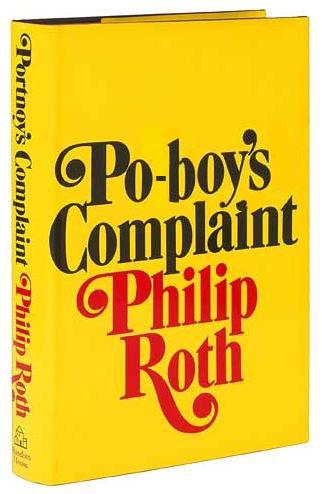 Po-boy’s Complaint by David Swider, of Kitty Snacks, a venture located in Oxford, Mississippi, whose southern hospitality has hosted many Po-boys (also Po’ boy, Po Boy, short for “poor boy”), a southern sandwich featuring deep-fried seafood.
Po-boy’s Complaint by David Swider, of Kitty Snacks, a venture located in Oxford, Mississippi, whose southern hospitality has hosted many Po-boys (also Po’ boy, Po Boy, short for “poor boy”), a southern sandwich featuring deep-fried seafood.
Of the many awesome entrees (White Nicoise; A Jello Course; Ulyssauce; 100 Years of Soul Food; A Handful of Crust; The Remains of the Danish; Babka on the Shore; Yeast of Eden; Romeo and Julie ate), PoBoy’s Compliant struck me as the most intuitive, playful, and unexpected.
Mississippi is still pensive about those Jews Mr. Roth, so let’s thanks David Swider for initiating this assimilation; it’s just a matter of time they’ll have you sitting next to good ol’ William. (Go Down, go Through, Moses — same difference.) David, congrats, I’ll be in touch with you regarding a free post on htmlgiant.
When Authors Get Hungry

Death in Venison
War and Peas
The Flan Almost Rises
The Unbearable Lightness of Beans
Chow Mein Kampf
Moby Duck
Finnegans Wok
Animal Farm 2
Freshly rejected from McSweeney’s lists, oh how we all try. Figured I’d do something productive with it. More please — the person who does my favorite gets a “free” guest post on whatever they want, so long as it’s not mean spirited and not “not safe for wok.”
Economist on anonymous
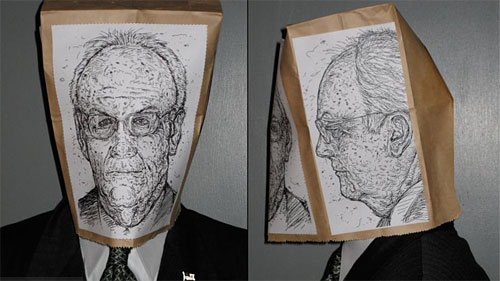
Many hands write The Economist, but it speaks with a collective voice. […] And some articles are heavily edited. The main reason for anonymity, however, is a belief that what is written is more important than who writes it. As Geoffrey Crowther, editor from 1938 to 1956, put it, anonymity keeps the editor “not the master but the servant of something far greater than himself. You can call that ancestor-worship if you wish, but it gives to the paper an astonishing momentum of thought and principle.”
Baby Hedgehogs and American Apparel Dogs: A Review
 Baby Hedgehogs and American Apparel Dogs by David Fishkind is self-described as an “epic poetic narrative,” which is what it is — if one considers one’s life since conception (“I was nothing and then I was two and then I was one”) to the present to be “epic,” a word hopefully employed by the 19 year old with a little sarcasm. It’s easily readable and generous in its candidness. There is a trend of hyper-aware self-conscious writing among younger (I use this word as a description of age, not qualifier) writers which is either the last course of irony, or its propagation. There is a difference between the self-consciousness behind, say, Notes from the Underground and Fishkind’s, the former being a philosophical device, the latter more of a collection of tweets. I don’t say this in derision, only to suggest that our recent technologies (iPhone, myspace, youtube, etc.) have altered our orientation with “the self.” But that’s okay. Fishkind describes autobiographical prosaic experiences (getting erections, going to museums, being in love) with refreshing stoicism met with thoughtfulness:
Baby Hedgehogs and American Apparel Dogs by David Fishkind is self-described as an “epic poetic narrative,” which is what it is — if one considers one’s life since conception (“I was nothing and then I was two and then I was one”) to the present to be “epic,” a word hopefully employed by the 19 year old with a little sarcasm. It’s easily readable and generous in its candidness. There is a trend of hyper-aware self-conscious writing among younger (I use this word as a description of age, not qualifier) writers which is either the last course of irony, or its propagation. There is a difference between the self-consciousness behind, say, Notes from the Underground and Fishkind’s, the former being a philosophical device, the latter more of a collection of tweets. I don’t say this in derision, only to suggest that our recent technologies (iPhone, myspace, youtube, etc.) have altered our orientation with “the self.” But that’s okay. Fishkind describes autobiographical prosaic experiences (getting erections, going to museums, being in love) with refreshing stoicism met with thoughtfulness:
January 14th, 2010 / 2:23 pm
Mississippi Review flash fiction issue, guest edited by Kim Chinquee, includes some wonderful writers.
Leonard Cohen tells a joke
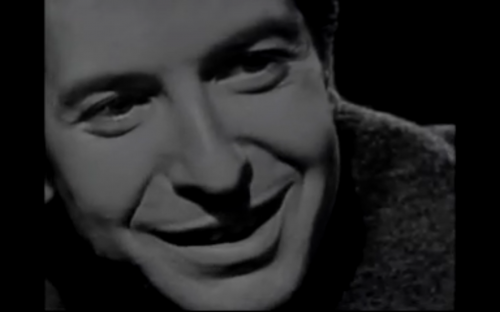
From a CBC Interview, 1966
Leonard Cohen: I thought I would change my name and get a tattoo.
Interviewer: Where?
Leonard Cohen: There’s this place on St. Lawrence Boulevard.
Idol worship
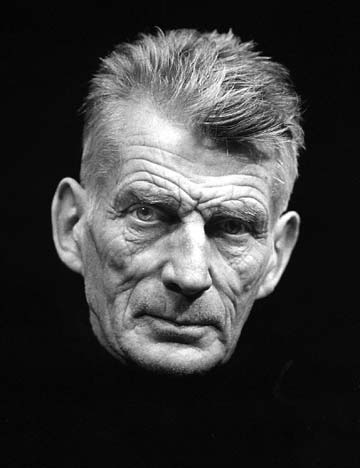 There’s something about Samuel Beckett that makes photo- and/or bio-graphers want to take black and white photos of him. Things are more serious in black and white, a kind of pre-industrial grimness overlaid with existential severity. (Metallica’s Unforgiven video also capitalizes on this aesthetic, or “old dude in dark room.”) His predecessors (Kafka, Joyce, etc.), having lived during the time of black and white photography, are remembered that way for good reason — but it’s interesting when others promote irrelevant aesthetics which seek to implicate some underlining value of an author.
There’s something about Samuel Beckett that makes photo- and/or bio-graphers want to take black and white photos of him. Things are more serious in black and white, a kind of pre-industrial grimness overlaid with existential severity. (Metallica’s Unforgiven video also capitalizes on this aesthetic, or “old dude in dark room.”) His predecessors (Kafka, Joyce, etc.), having lived during the time of black and white photography, are remembered that way for good reason — but it’s interesting when others promote irrelevant aesthetics which seek to implicate some underlining value of an author.
I often experience idolatry when looking at author photos. In this business, they are the gods. Readers need a “way inside,” and as evocative as words are, pictures of the buggers don’t hurt. I love it when a moderately famous and respected author is clearly depressed and struggling to hold a reasonable face, for it somehow makes me feel better. When the author is content, or worse, self-satisfied and (god) attractive, I feel passive yet distinct anger towards the author. This, of course, is stupid, but I am human, and humans are good at stupid.
A tail of two books, are there others?
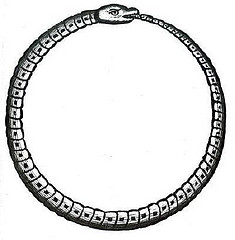 aims to celebrate and mimic the cyclical continuum of both Finnegan’s Wake, its first line being riverrun, past Eve and Adams, from swerve of shore to bend of bay and last line A way a lone a last a loved along the (duh — “along the riverrun,” pay attention) and the first and last lines of Pale Fire, Nabokov’s novel named after a “fictional” poem by John Shade: (first) I was the shadow of the waxwing slain/ By the false azure in the windowpane and (last) Some neighbor’s gardener, I guess — goes by/ Trundling an empty barrow up the lane wherein the lines are composed to predetermine the first in a never ending fateful loop like this post
aims to celebrate and mimic the cyclical continuum of both Finnegan’s Wake, its first line being riverrun, past Eve and Adams, from swerve of shore to bend of bay and last line A way a lone a last a loved along the (duh — “along the riverrun,” pay attention) and the first and last lines of Pale Fire, Nabokov’s novel named after a “fictional” poem by John Shade: (first) I was the shadow of the waxwing slain/ By the false azure in the windowpane and (last) Some neighbor’s gardener, I guess — goes by/ Trundling an empty barrow up the lane wherein the lines are composed to predetermine the first in a never ending fateful loop like this post
